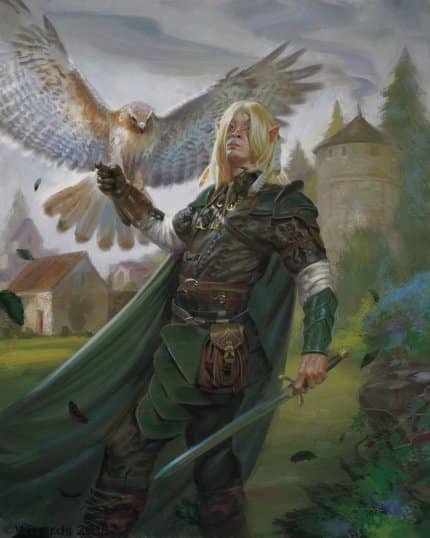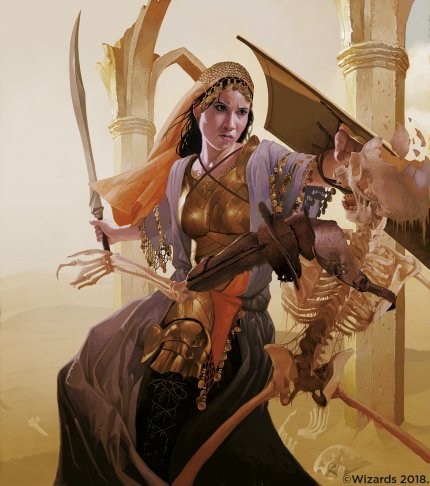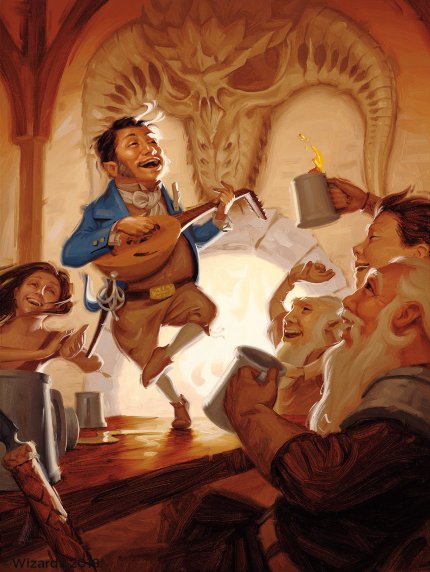D&D: The six attributes simply explained

There are three physical attributes (strength, dexterity, and constitution) and three mental attributes (intelligence, wisdom, and charisma) in the character life of a Dungeons & Dragons hero. The more points you award for a value, the better you are at it. Each class benefits from one attribute in particular. You need this to hit better with your attacks or to cast spells. Skills are associated with most attributes, which your hero can be trained in, which means that he will find certain tasks easier than his friends. The following guide explains character attributes and their associated skills in detail, so you know what to choose to customize your hero to your liking.
Strength
Whether your hero character is a beefcake or a puny leek depends on your Strength stat. While dexterity characters are also very athletic, they’re more like D&D’s acrobats, while strength characters are the Arnold Schwarzeneggers.
Skills that benefit from Strength:
- Athletics: Your game master can always ask for an athletics check if your character’s athleticism is required. For example, when swimming in strong currents, climbing a rope, opening a heavy lid, or attempting to hold an opponent in combat (wrestling). athletics can also be important if you want to jump over a chasm. By the way, how far or high you can jump is fixed and also depends on your strength: High jump in meters: (Strength modifier +3) times 0.3. Long jump in meters: Strength value times 0.3 OR 1 meter per 3 points of Strength
- Carrying capacity of a character: A character’s carrying capacity isn’t really an attribute skill, but your strength value is a measure of how much stuff your character can carry. To do this, multiply your strength value by 15.Classes that benefit from Strength: Barbarian, Fighter, Paladin
skill
Dancers, circus acrobats, martial monks, archers – they all benefit massively from their body control and that is precisely the ability represented by the Dexterity value.
Rangers need dexterity above all else in D&D. But since they can also do a little magic and their magic attribute is wisdom, a few points in wisdom don’t hurt either.
Source: SOURCE: WIZARDS OF THE COAST LLC, A SUBSIDIARY OF HASBRO
Skills that benefit from Dexterity:
- acrobatics you don’t just need it to perform tricks that are ready for the ring. acrobatics is just as important for staying on your feet in rough seas on a ship, balancing over a log or not slipping on a frozen lake.
- manual dexterity is the favorite ability of all thieves in D&D. If you don’t have thief tools handy, she can help you pick locks or steal some gold coins from an NPC’s pouch. That being said, this talent is useful for slipping someone something on the sly or disabling mechanical traps.
- stealth: If you want to sneak through enemy territory without being detected, you better be well-trained in stealth be. You also need this ability if you want to approach someone unnoticed.
Classes that benefit from Dexterity: Monk, Fighter, Rogue, Ranger
constitution
The Constitution attribute determines how much your character can withstand. With each level-up, the constitution modifier determines how many additional life points you can enter in your character sheet in addition to the result you rolled. You need Constitution to endure exhausting situations, resist poison, and be less susceptible to disease. However, there are only Constitution saving throws; none of your skills benefit directly from this value.
Skills that benefit from Constitution: –
Classes that benefit from Constitution: all (Constitution is a good second for any class)
wisdom
You either have common sense or you don’t, they say. And that same common sense is represented by wisdom in D&D. Whether a character trusts his gut feeling and is able to perceive his surroundings to a high degree is also determined by this value.
The most important attribute for Clerics is Wisdom. Wisdom level affects how many spells a cleric can prepare, how well they hit, and how easy it is for opponents to resist a spell.
Source: SOURCE: WIZARDS OF THE COAST LLC, A SUBSIDIARY OF HASBRO
Skills that benefit from Wisdom:
- deal with animals your hero needs to become a real animal friend. Will an injured animal allow him to take care of it? Does a riding horse buck? Maybe a wolf pack can be fobbed off with a few rations instead of eating your characters? So that you can roll out such questions, is deal with animals needed.
- recognize motive is an important skill that determines how well a character is able to see through lies or gauge the true background of the other person. You also have to use this skill to correctly assess emotions and analyze body language.
- medicine often underestimated, but is a valuable skill as it is used to stabilize unconscious heroes. (This eliminates the need for the dying player to make death saves they might miss.) If you want to assess the severity of an injury or identify an illness, you need to do that medicine.
- perception exists in D&D both passively and actively.
- survival skills describes the entire repertoire of skills that an adventurer needs to have in order to survive in everyday life. These would be for example: finding a suitable place to camp, lighting a campfire, finding food in the wilderness, not getting lost, sleeping well on hard ground or being able to recognize signs of a change in the weather.
Classes that benefit from Wisdom: Druid, Cleric, also Monk and Ranger (as a secondary stat, next to Constitution)
intelligence
Intelligence is the attribute for all masterminds, nerds and masterminds among you. Everything a character has learned throughout their life is represented by this stat. So it’s just as much about accumulated knowledge as it is about a hero’s actual IQ. Characters with higher intelligence remember past events more easily and can share their know-how on different subjects.
Skills that benefit from Intelligence:
- Arcane Lore describes any knowledge of magic. A character who scores high here is familiar with magical rituals, spells, the different schools of magic, and mystical symbolism.
- story is on the one hand the knowledge about the lore of a world, but on the other hand also the general memory of a hero.
- investigations you always need when you need to find something and show an eye for detail. Here you have the typical Sherlock Holmes skill. For example, you roll on research to search a room for treasure or traps or to find clues.
- natural history Determines how well your character knows about the workings of nature. Weather phenomena, species-typical animal behavior and physical principles fall into this area just as much as knowledge about the most diverse landscapes or the climate of a zone.
- religion is, as the name suggests, knowledge about religions, gods, cults or worship rituals.
Classes that benefit from Intelligence: Mage, magician
charisma
Charismatic heroes succeed in every flirt. They can easily fetch better prices from dealers, get away with lies more easily, and seem to find the right words in every situation with complete intuition.
Bards particularly benefit from Charisma. A little skill doesn’t hurt them either.
Source: SOURCE: WIZARDS OF THE COAST LLC, A SUBSIDIARY OF HASBRO
Skills that benefit from Charisma:
- To deceive: Want to tell a lie and not get caught? Then you need a few points in To deceive! You make such a roll whenever you are trying to disguise your true intentions or background, or when you are lying outright.
- intimidate is a solid negotiation option. If the other person is reasonably afraid of you, this may be a way to avoid confrontation or get your way.
- Appear is the ultimate bardic skill. (Performance, which is actually what it understandably describes.) If you’re giving a lilting speech, dancing, performing a piece of music, or pretending to be someone else, there’s a good chance your GM is asking for one Appear-Check from you.
- Convince is always an important talent in many situations – after all, everyone wants to get their own way at some point. You need this skill when acting and generally whenever you want to get your point across in situations of differing opinions or when you need someone to do something for you.
Classes that benefit from Charisma: Warlock, bard, wizard, also paladin (as a secondary value, next to constitution).
next page
Reference-www.buffed.de

